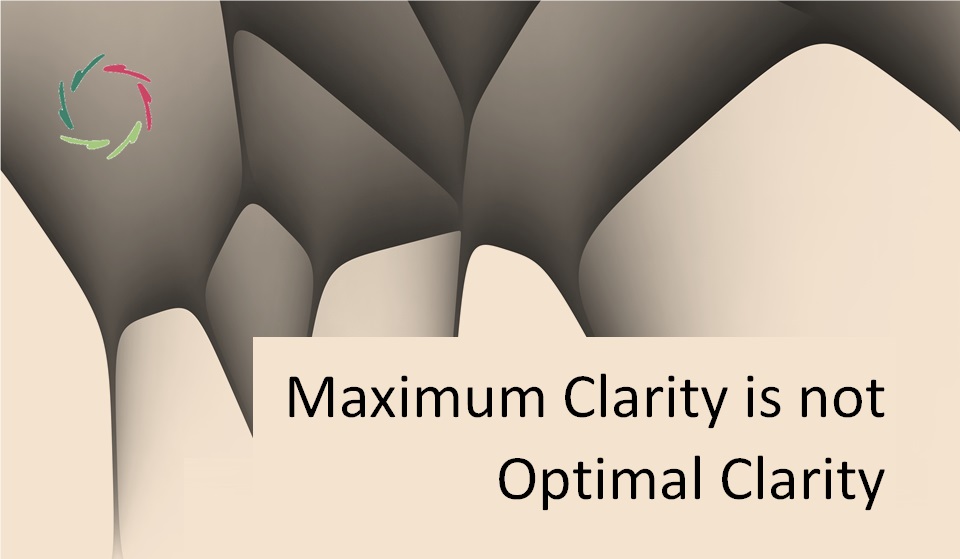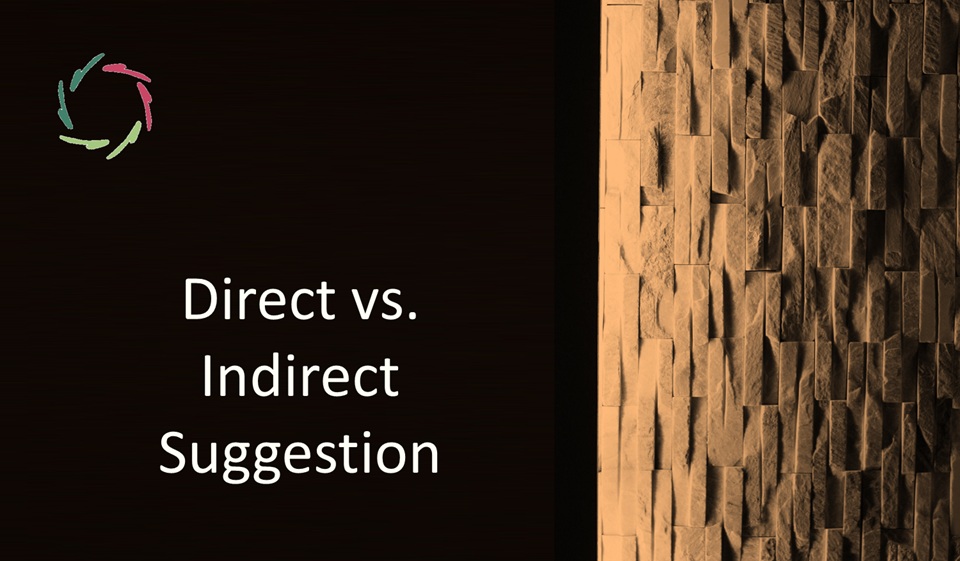Maximum Clarity is not Optimal Clarity

Maximum clarity would be optimal if everything could be made totally clear. Since this is not the case, the optimum is not the maximum.
Conceptually clear?
This is how the term is mainly used by those who value rationality as something purely conceptual. With conceptual building blocks (clear arguments), logical rules can be applied to construct a building of rationality.
However, if the building blocks are hazy, the construction of such a building is a forlorn undertaking. Therefore, such rational people look for clarity in every argument, every stone of the building.
Clearly, one should strive for as much clarity as possible.
Indeed ― but no more than that. Otherwise, it leads to the loss of depth ― the loss of anything meaningful. What one ends up with if going too far in the striving for clarity is mental processing approaching that of a cheap conceptual robot.
The aim should be to go as far as possible but no further.
Toward another take on rationality.
Namely, rationality as the striving to take into account as much of reality as possible ― then to be as logical as possible in making constructions.
So, where is the edge of ‘possible’?
Meaningfulness is part of reality. Thus, it is most rational to take meaningfulness into account, even while hazy. The exemplary domain is poetry. One can analyze a poem to shreds, but the poetry is broken in doing so. The poetic content is not to be found in clarity. Thus, one cannot conceptualize total reality. It is plainly impossible.
Beyond optimal clarity, the clarity itself diminishes since part of reality gets underexamined. Moreover, this underexamined part is left open for abuse by any irrational party. So, what is ‘optimal’?
To me, it is ‘optimal toward deep meaningfulness.’
Clarity has no deep meaning by itself. It is meaningless if no one projects meaning into it or uses it as a steppingstone toward meaningful depth.
One should use clarity for the sake of depth. According to the ‘other take on rationality,’ a lack of depth goes together with a lack of rational clarity.
If clarity is opposed to deep meaningfulness, the latter should be chosen.
When this is largely NOT done, one may ask whether clarity is the final aim or whether the objective is instead to get rid of inconvenient meaningfulness/depth ― inconvenient, in any case, to mere-ego.
The convenient can make people feel comfortable. The inconvenient can make people feel very uncomfortable. Therefore, please don’t count on meaningfulness straightforwardly bringing you an easy life. Therefore, neither does genuine clarity.
As a rebuke to those who find the optimal in the maximal, I dare say their endeavors lack depth as well as genuine clarity. One can see this most clearly, indeed, in the use of many concepts as if these are crispier than warranted from any critical viewpoint. This is especially relevant when talking scientifically about mind-related stuff.
Medicine
This is my main objection against much of modern concept-based medical science. It reduces humanity. This way, it is also blind to much about health itself. This is clearly not rational. Also, it’s a prime reason why we see so much chronic illness being managed as if patients are robots.
Especially in psychosomatics, patients may remain comfortably happy – and numb – if they receive an easy conceptual diagnosis and ‘something concrete’ as a therapy. That is not the best for them as total persons ― in many cases, quite the opposite. I have written extensively about this, also in scientific format, emphasizing clarity.
Clarity as much as possible ― but no more than that.


